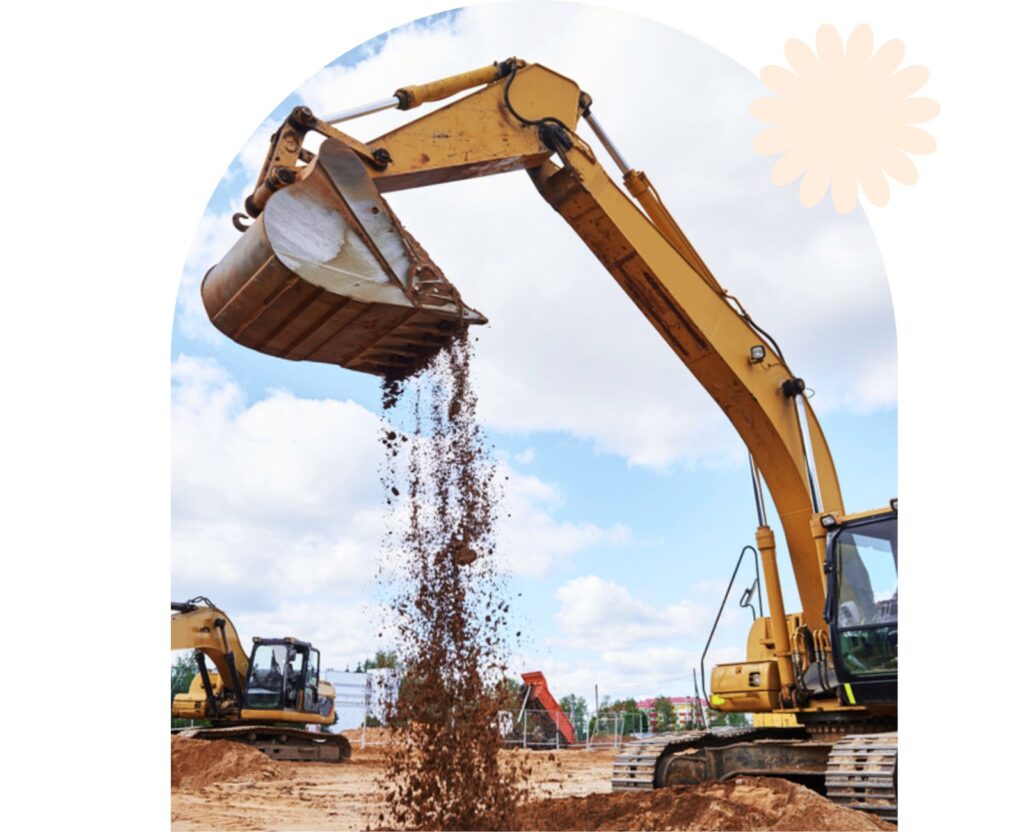Menu
Are you looking to take out a commercial loan for your business? Look no further than LoanHaus. We’ve been helping businesses secure competitive financing for more than two decades, and we’d love the opportunity to do the same for you. Explore our range of commercial loan options and submit your application online today.
From traditional commercial business loans to lines of credit and low-doc loans, LoanHaus is your solution for navigating the commercial lending landscape.
Our mission is to make the process of securing funds as hassle-free as possible. With our extensive network of flexible asset financiers, we can connect you with the best and most affordable deals tailored to your business, no matter its size. Find out what commercial loan best fits your needs, and get in touch with us to begin your application.

Business owners are always on the lookout for the next big thing that’ll propel their business forward. But, more often than not, a substantial amount of capital is needed to bring those ideas to life. That’s where the experienced team at LoanHaus comes in. We can help you tap into some of the most competitive and low-cost commercial business loans on the market.
A commercial loan is the financial key that unlocks growth and expansion for businesses of all sizes. Tailored to suit the unique needs of enterprises, these loans are versatile tools for a variety of purposes. Whether you’re a small business looking to bolster working capital, a mid-sized company eyeing expansion opportunities, or a large corporation with complex financial needs, commercial loans offer the capital necessary to seize opportunities and navigate challenges. With flexible terms, competitive interest rates, and customised repayment schedules, they are the financial lifeline that can help your business thrive, scale, and secure a brighter future.
Commercial loans are tailored for any sole trader, small to medium business owners and ABN holders seeking to expand their business. Whether pursuing a new venture or tackling obstacles, commercial loans provide the necessary funds to capitalise on opportunities and surmount challenges.
Still unsure if a commercial loan is the right fit for your business? Our knowledgeable and friendly consultants are happy to walk you through the suite of loan options we offer to ensure you receive a solution that aligns with your business objectives.

LoanHaus specialises in guiding small to medium businesses with Equipment Finance. For added peace of mind, we have extensive expertise in a wide range of fields, such as heavy machinery, agricultural equipment, industrial plants and excavators, so we’re confident we can find the most suitable solution for your business.
With an array of lending options and financial products at our disposal, we’re committed to securing the optimal deal for your business and the specific equipment you’re eyeing.
Commercial equipment loans suit anyone who has their own ABN, is a sole trader, or small to medium business owner. Whether you’re in the market for heavy machinery, agricultural equipment, industrial plants or excavators, our expertise extends to all these domains.
If your business’s financing needs may be geared towards another solution, our consultants are available to walk you through our suite of commercial lending products to match you with a more appropriate solution.
Under a Chattel Mortgage, the customer takes ownership of the vehicle (chattel) at the time of purchase. The financier takes a ‘mortgage’ over the vehicle as security against the debt until the loan is paid in full. Once the loan is repaid, the charge is removed, giving the customer clear title to the vehicle. The customer can claim the GST, interest charges on the contract and depreciation up to the Depreciation Limit as a tax deduction.
A Chattel Mortgage suits someone who is going to use a motor vehicle predominately for business use, therefore this car financing product is used by companies, trusts, sole traders, partnerships and ABN holders who operate under a “cash accounting or Accrual basis”. This allows them to claim the GST in the vehicle’s price up-front when next doing their BAS.
If you are looking for something more flexible or that offers different borrowing terms, LoanHaus is more than happy to assist you in finding a more suitable lending solution.
How it Works: A chattel mortgage is a type of secured loan where the business takes ownership of the equipment from the beginning. The lender provides funds, and the asset serves as collateral. The business repays the loan over an agreed-upon term.
Advantage: The business owns the equipment from the start and can claim tax benefits. You can claim the Goods and Services Tax (GST) included in the vehicle’s purchase price as an input tax credit on your Business Activity Statement (BAS). Additionally, you may also be able to deduct the interest charges on the loan and depreciation expenses up to the Depreciation Limit as tax deductions, subject to the advice of your tax professional.
Consideration: Failure to repay the loan could result in the lender repossessing the equipment
How it Works: In a finance lease, the lender purchases the equipment and leases it to you. You make regular lease payments over a set term, and at the end of the lease, you have to buy the equipment at a predetermined price (which is the residual value amount).
Advantage: If you prefer lower monthly payments during the lease term, the residual value brings down those instalments.
Consideration: The business doesn’t own the equipment during the lease term.
A “low doc” loan, short for “low documentation” loan, is a type of loan designed for businesses that may have difficulty providing the extensive documentation typically required for traditional loan applications.
Advantages: The primary feature of a low-doc loan is that it requires less documentation compared to standard loans. This is particularly useful for self-employed individuals, small business owners, freelancers, or those with irregular income streams who may not have all the standard income verification documents that traditional lenders usually request.
Consideration: Your credit history and the length of time you have been operating your business will be used to assess your eligibility. You may also be required to supply bank statements or a letter from your accountant to support your application. Low Doc Car Loans must be secured.
When considering which type of loan to choose, it’s important to assess your business’s financial situation, the expected usage of the equipment, your cash flow, and your long-term goals. Each type of loan has its advantages and considerations, so it’s recommended to consult with your accountant who can guide you toward the best option for your specific needs.
How It Works: An operating lease is similar to a finance lease, but at the end of the lease term, you typically have the option to return the equipment, renew the lease, or buy the equipment at its current market value. This option is ideal if you’re looking for short-term equipment usage or if you want to regularly upgrade to newer models.
In a CHP, the lender purchases the equipment on behalf of the business and then leases it back to the business. The business makes regular payments, typically over a fixed term, until the total cost (including interest) is covered. Once the loan is repaid, the business gains full ownership of the equipment.
Advantage: The business gains ownership of the equipment at the end of the loan term. Businesses using the Cash accounting & Accrual method of accounting can claim the GST paid on the purchase price of the asset & interest up-front when they lodge their next Business Activity Statement (BAS).
Consideration: The business is responsible for maintenance and other ownership costs from the beginning.
How It Works: A line of credit provides you with a revolving credit limit that you can draw from as needed. This can be beneficial if you have ongoing equipment needs or if you want the flexibility to borrow smaller amounts for various equipment purchases.
Cash flow loans are a type of short-term business financing designed to address cash flow gaps or immediate funding needs. These loans focus on the regular inflow and outflow of cash within a business, helping to maintain day-to-day operations, cover operational expenses, seize growth opportunities, or bridge gaps between incoming revenue and outgoing expenses. The size of the loan is determined by the turnover in the business over the past 6 months on average.
Key features of cash flow loans:
Short-term Focus: Cash flow loans are short-term financing solutions, designed for businesses experiencing temporary cash shortages due to factors like outstanding invoices or peak business cycles, and are typically repaid in less than a year.
Based on Cash Flow: Unlike traditional loans, cash flow loans emphasise and rely on the business’s cash flow history and projected future cash flows.
Flexible Usage: Cash flow loans can be used for various purposes, including operating expenses, managing seasonal fluctuations, financing inventory, seizing opportunities, or addressing unexpected expenses.
Collateral and Personal Guarantees: While cash flow loans are generally unsecured, lenders may still require a personal guarantee from the business owner or a lien on business assets as security.
Interest Rates: Interest rates for cash flow loans can be higher than those for traditional loans due to the short-term nature and sometimes reduced credit requirements.
These custom-tailored financial solutions are designed to assist entrepreneurs with poor credit scores in obtaining the necessary funds to foster growth and success. Whether you’re aiming to scale your operations, acquire new equipment, or cover unforeseen expenses, bad credit commercial loans serve as a crucial support system for those who have encountered financial setbacks. Featuring adaptable terms, these loans empower you to seize opportunities, all while working towards both your entrepreneurial aspirations and credit rehabilitation.
In construction and excavation, having the right equipment is crucial. We offer customised financing solutions to make powerful machines accessible to you. Our financing options cover a wide range of eligible equipment, ensuring your construction, mining, or land development project can proceed with the right tools. We’re here to support you financially, so you can dig deeper, reach higher, and build better.
Eligible for financing:
When it comes to keeping people and goods on the move, the right vehicles are essential. LoanHaus understands the critical role transportation plays in our lives and businesses. We offer specialised financing solutions designed to put you in the driver’s seat of buses, trucks, vans, and a wide range of transport vehicles. Whether you’re expanding your fleet, upgrading your logistics operations, or starting a transportation venture, our financing options cover a diverse array of eligible vehicles. From city buses and delivery trucks to luxury coaches and specialised transport units, we’re here to ensure that your journey towards transportation success is both smooth and financially sound.
Eligible for financing:
Farming, at its core, demands the right tools for success. That’s where Farm Equipment Finance steps in. Our specialised financing solutions are tailored to empower farmers, big and small, with the machinery they need to thrive. Whether it’s tractors, harvesters, irrigation systems, or livestock handling equipment, we’ve got you covered. Our team of experts understands the unique challenges of agriculture and will work closely with you to secure the financing you need, so you can focus on what truly matters: a bountiful harvest and a prosperous future.
Some types of farm equipment financed are:
You have two options: Apply online using our user-friendly Quote form or call us directly. It's your choice – either way, it's quick and easy.
Once you've initiated the process, we'll assign a dedicated consultant to guide you through every step. They'll work on your behalf to find the most affordable loan options, process your application, and manage the paperwork for a smooth settlement.
With our streamlined approval process, you're just moments away from your financial goals. Apply now and experience a hassle-free journey toward securing the funds you need!
When it comes to securing commercial financing, business owners have many options, with each lender having unique requirements. For instance, some lenders may ask that your business meet a certain revenue threshold, while others may ask you to provide a form of collateral.
However, LoanHaus welcomes applications from businesses with varying financial histories for commercial loans. Our dedicated consultants, with access to over 30 lenders, are committed to assisting you in finding the right commercial loan to meet your needs. We even specialise in sourcing bad credit commercial loans to businesses without the best financial history.
When applying for a commercial loan in Australia, businesses typically need to provide documentation relating to their business, such as financial statements, tax returns, business plans, bank statements, proof of collateral and legal documents (like trust deeds if applicable). The exact requirements can vary by lender and the type of loan you are applying for, with some lenders requiring additional documentations, such as credit reports or proof of income.
As business owners ourselves, we recognise the significance of securing the necessary capital to propel your business forward without delay. When you’re paired with one of our skilled consultants, they will dedicate themselves to finding the most advantageous commercial loan options available for your specific situation. Our application process is designed to guarantee a smooth and straight forward experience for all our clients, making business financing less of a burden and more of an empowering step towards growth.
Yes, commercial business loans vary in amounts, tailored to different needs and types of businesses. For instance, a line of credit offers flexible borrowing up to a certain limit, suitable for managing cash flow or unexpected expenses. Chattel mortgages involve loans secured by movable personal property, typically offering significant amounts for purchasing vehicles or equipment.
Cash flow loans are based on a company’s projected revenues, providing funds based on future earnings potential. Low doc loans cater to businesses unable to provide extensive documentation, often with varying limits based on the lender’s risk assessment. Each loan type has its specific criteria and loan amounts designed to match various business financing requirements.
Yes! Once you’ve browsed our range of online commercial loans, you can submit an online application, and we’ll be in touch within the same day. Alternatively, you can reach out to us directly via phone at 1300 611 325. We’ve streamlined the commercial lending process and can offer you a quote with no damage to your credit history.
Interest rates for commercial loans accessible through LoanHaus are influenced by several factors, including the creditworthiness of the business, market conditions, the loan amount and term, the type of loan and collateral offered. Lenders may also consider the business’ financial history, cash flow stability and industry risk before offering a tailored interest rate.
Yes. Upon receiving approval from a lender, you will need to pay an origination fee to LoanHaus for our services. This amount is funded into the loan contract and varies up to a maximum of $1495. Additionally, the specific lender issuing your loan might impose various fees associated with the application process. These could include an application fee, a fee for security registration, an inspection fee or other charges related to the loan offering.
Commercial loans in Australia come with various repayment plans to accommodate the diverse financial scenarios of businesses. Some options include fixed payments where the amount remains constant over the term, combining both principal and interest.
Should you wish to tailor your payment schedule to better fit your business’ financial operations, our consulting team is ready to assist in finding a lender that aligns with your needs.
With more than 3 decades worth of experience in the lending field, our team is ready to help you find a loan that suits your needs and provide you with great service. We will be in contact on the same day Monday to Saturday. Find out just how easy accessing car loan finance can be with LoanHaus today. Please use the accompanying form to submit a Get a Quote.

We are here to make it easy. Our team will call you back and discuss how we can help. Don’t worry, getting a quote and rate will not affect your credit score.
To start, simply click on the button below.
With multiple lenders, committed service and decades of experience, we’ll find the right finance option to suit your situation.